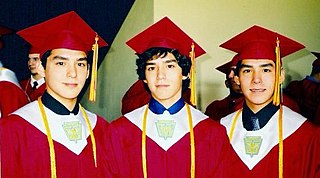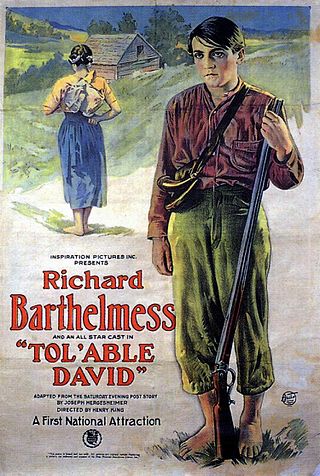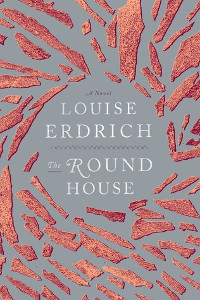Related Research Articles

Carl August Sandburg was an American poet, biographer, journalist, and editor. He won three Pulitzer Prizes: two for his poetry and one for his biography of Abraham Lincoln. During his lifetime, Sandburg was widely regarded as "a major figure in contemporary literature", especially for volumes of his collected verse, including Chicago Poems (1916), Cornhuskers (1918), and Smoke and Steel (1920). He enjoyed "unrivaled appeal as a poet in his day, perhaps because the breadth of his experiences connected him with so many strands of American life". When he died in 1967, President Lyndon B. Johnson observed that "Carl Sandburg was more than the voice of America, more than the poet of its strength and genius. He was America."

The Color Purple is a 1982 epistolary novel by American author Alice Walker which won the 1983 Pulitzer Prize for Fiction and the National Book Award for Fiction. It was later adapted into a film and musical of the same name.

A multiple birth is the culmination of one multiple pregnancy, wherein the mother gives birth to two or more babies. A term most applicable to vertebrate species, multiple births occur in most kinds of mammals, with varying frequencies. Such births are often named according to the number of offspring, as in twins and triplets. In non-humans, the whole group may also be referred to as a litter, and multiple births may be more common than single births. Multiple births in humans are the exception and can be exceptionally rare in the largest mammals.

Terence Henry Stamp is an English actor. Known for his sophisticated villain roles, he was named by Empire as one of the 100 Sexiest Film Stars of All Time in 1995. He has received various accolades including a Golden Globe Award, a Cannes Film Festival Award, and a Silver Bear as well as nominations for an Academy Award and two BAFTA Awards.

Glue is a 2001 novel by Scottish writer Irvine Welsh. Glue tells the stories of four Scottish boys over four decades, through the use of different perspectives and different voices. It addresses sex, drugs, violence, and other social issues in Scotland, mapping "the furious energies of working-class masculinity in the late 20th century, using a compulsive mixture of Lothians dialect, libertarian socialist theory, and an irresistible black humour." The title refers not to solvent abuse, but the metaphorical glue holding the four friends together through changing times.

Emily "Cissy" Houston is an American soul and gospel singer. After a successful career singing backup for such artists as Roy Hamilton, Dionne Warwick, Elvis Presley, and Aretha Franklin, Houston embarked on a solo career, winning two Grammy Awards for her work.
Katherine Esther Jackson is the matriarch of the Jackson family of entertainers that includes her children Michael and Janet Jackson.

Carl Sandburg Home National Historic Site, located at 81 Carl Sandburg Lane near Hendersonville in the village of Flat Rock, North Carolina, preserves Connemara, the home of Pulitzer Prize-winning poet and writer Carl Sandburg. Though a Midwesterner, Sandburg and his family moved to this home in 1945 for the peace and solitude required for his writing and the more than 30 acres (120,000 m2) of pastureland required for his wife, Lilian, to raise her champion dairy goats. Sandburg spent the last twenty-two years of his life on this farm and published more than a third of his works while he resided here.
Michael Patrick MacDonald is an American activist and author focusing on crime and violence. MacDonald is Irish American. In his memoir, All Souls: A Family Story From Southie, MacDonald combines his heritage with his passion for the anti-violence movement. MacDonald helped start Boston's gun-buyback program and founded the South Boston Vigil group. A local community that works to honor Southie's victims of gun violence.

Tol'able David is a 1921 American silent film based on the 1917 Joseph Hergesheimer short story of the same name. It was adapted to the screen by Edmund Goulding and directed by Henry King for Inspiration Pictures. A rustic tale of violence set in the Allegheny Mountains of eastern West Virginia, it was filmed in Blue Grass, Virginia, with some locals featured in minor roles.

Julia Peterkin was an American author from South Carolina. In 1929 she won the Pulitzer Prize for Novel/Literature for her novel Scarlet Sister Mary. She wrote several novels about the plantation South, especially the Gullah people of the Lowcountry. She was one of the few white authors who wrote about the African-American experience.
I Know I've Been Changed was the first successful play from playwright Tyler Perry. The play focuses on issues including child abuse and rape and how they are overcome by a strong belief in God.

Alex Kotlowitz is an American journalist, author, and filmmaker. His 1991 book There Are No Children Here was a national bestseller and received the Christopher Award and Helen Bernstein Award. He is a two-time recipient of both the Peabody Award and the Dupont Award for journalism. He co-produced the 2011 documentary The Interrupters, based on his New York Times Magazine article, which received an Independent Spirit Award and Emmy Award.

Oprah Gail Winfrey is an American talk show host, television producer, actress, author, and media proprietor. She is best known for her talk show, The Oprah Winfrey Show, broadcast from Chicago, which ran in national syndication for 25 years, from 1986 to 2011. Dubbed the "Queen of All Media", she was the richest African-American of the 20th century and was once the world's only black billionaire. By 2007, she was often ranked as the most influential woman in the world.

The Interrupters is a 2011 documentary film, produced by Kartemquin Films, that tells the story of three violence interrupters who try to protect their Chicago communities from the violence they once employed. It examines a year in which Chicago drew national headlines for violence and murder that plagued the city.
The Helen Bernstein Book Award for Excellence in Journalism is an annual literary award for "a journalist whose work has brought public attention to important issues", awarded by the New York Public Library. It was established in 1987 in memory of journalist Helen Bernstein, and there is a cash award of $15,000.

Middle School: The Worst Years of My Life is a realistic fiction novel by James Patterson that serves as the beginning of Patterson's Middle School series. Published in the United States by Little, Brown and Company on June 27, 2011, the book follows sixth grader Rafe Khatchadorian as he begins middle school and "copes with the awkwardness of adolescence: crushes, bullying, family issues" as he attempts to break every school rule in the code of conduct. The book received critical acclaim from many reviewers and went on to spawn a sequel, Middle School: Get Me Out of Here!.

The Round House is a novel by the American writer Louise Erdrich first published on October 2, 2012 by HarperCollins. The Round House is Erdrich's 14th novel and is part of her "justice trilogy" of novels, which includes The Plague of Doves released in 2008 and LaRose in 2016. The Round House follows the story of Joe Coutts, a 13-year-old boy who is frustrated with the poor investigation into his mother's gruesome attack and sets out to find his mother's attacker with the help of his best friends, Cappy, Angus, and Zack. Like most of Erdrich's other works, The Round House is set on an Ojibwe reservation in North Dakota.
Maria is the title given to a Filipino version of Cinderella collected by Fletcher Gardner and published in The Journal of American Folklore, in 1906. The story is related both to the international Cinderella narrative, as well as to the motif of the calumniated wife.
References
- ↑ "Carl Sandburg Award | Book awards | LibraryThing". Librarything.com. Retrieved 16 November 2021.
- ↑ "Winfrey to Star in 'No Children Here'". Los Angeles Times . 26 July 1993. Retrieved 16 November 2021.
- ↑ McIver, Denise L. (29 November 1993). "There Are No Children Here". Variety.com. Retrieved 16 November 2021.